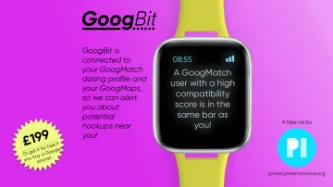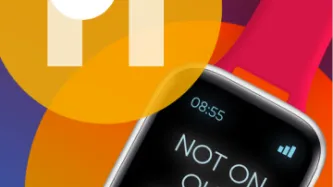Search
Content type: Long Read
This piece is a part of a collection of research that demonstrates how data-intensive systems that are built to deliver reproductive and maternal healthcare are not adequately prioritising equality and privacy.
What are they?
Short Message Services (SMS) are being used in mobile health (MHealth) initiatives which aim to deliver crucial information to expecting and new mothers. These initiatives are being implemented in developing countries experiencing a large percentage of maternal and…
Content type: Long Read
In 2019, we exposed the practices of five menstruation apps that were sharing your most intimate data with Facebook and other third parties. We were pleased to see that upon the publication of our research some of them decided to change their practices. But we always knew the road to effective openness, transparency, informed consent and data minimisation would be a long one when it comes to apps, which for the most part make profit from our menstrual cycle and even sometimes one’s desire to…
Content type: Explainer
At first glance, infrared temperature checks would appear to provide much-needed reassurance for people concerned about their own health, as well as that of loved ones and colleagues, as the lockdown is lifted. More people are beginning to travel, and are re-entering offices, airports, and other contained public and private spaces. Thermal imaging cameras are presented as an effective way to detect if someone has one of the symptoms of the coronavirus - a temperature.
However, there is little…
Content type: Call to Action
Google wants to know everything about you.
It already holds a massive trove of data about you, but by announcing its plans to acquire the health and fitness tracker company Fitbit, it now clearly wants to get its hands on your health too. We don’t think any company should be allowed to accumulate this much intimate information about you. This is why we’re trying to stop its merger with Fitbit.
Google and Fitbit need the European Commission’s approval before they can merge. The merger would…
Content type: News & Analysis
This week, we read that a former Apple contractor who blew the whistle on the company’s programme to listen to users’ Siri recordings has decided to go public, in protest at the lack of action taken as a result of the July 2019 disclosures. The news adds to a series of revelations that have been reported over the past months.
While the issue raises serious questions regarding the compatibility of such practices with data protection laws, at the same time, it highlights a wider problem that…
Content type: Advocacy
Background
In February 2020, the Australian Competition and Consumer Commission (ACCC) commenced an investigation into the proposed acquisition of Fitbit by Google, which was originally announced in November 2019.
Google, whose parent company, Alphabet, in 2018, generated 85% of its $136.22 billion in revenue from delivering targeted advertisements, has a past of competition law infringements in the European Union. Fitbit is a company that produces and sells health tracking technologies and…
Content type: Examples
GDPRHub is collecting a list of projects around the world that are using personal data to combat the novel coronavirus. The list is divided into categories such as decentralised contact tracing apps and frameworks; centralised contact tracing systems; lockdown enforcement; self-assessment apps; mapping projects; and statistical analysis. The site also tracks COVID-19-releated data protection issues.
Source: https://gdprhub.eu/index.php?title=Projects_using_personal_data_to_combat_SARS-…
Content type: News & Analysis
It is a long-standing privacy principle that an individual should have access to their personal information. This is particularly necessary in healthcare - after all there is nothing more personal than health information.
As the mass digitisation of health records increases, many issues arise about this access right. The right of 'subject access' comes with its own complexities. One challenge is that individuals can sometimes be compelled to conduct subject access requests in…
Content type: News & Analysis
We very much welcome today's announcement by Health Secretary Jeremy Hunt that people will be allowed to opt out of having their medical records shared in the NHS England centralised information bank.
The move is an important one for data privacy and patient choice, and has been a key objective of Privacy International in our collaboration with the new medConfidential (which launched yesterday). A month ago, NHS England (and the Director of…
Content type: Press release
PI, Genewatch and the Council for Responsible Genetics launch the Forensic Genetic Policy Initiative
Today, 60 countries worldwide operate national DNA databases, and at least 34 more are considering putting them in place. The use of DNA evidence in criminal investigations can bring great benefits to society, helping to solve crimes, convict the guilty and exonerate the innocent. However, the mass storage of DNA samples and computerized profiles in databases raises important human rights concerns. Your DNA profile can be used to track you or your relatives. Your DNA sample has the…







